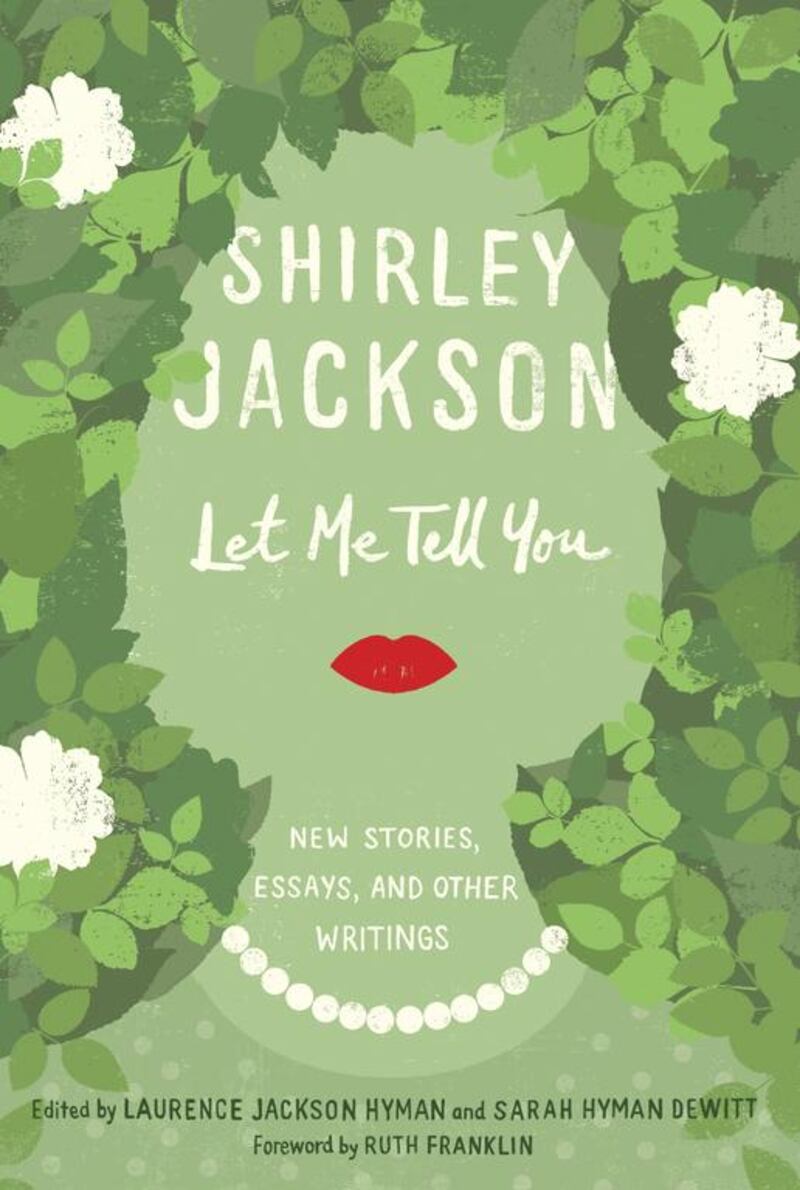“One of the nicest things about being a writer,” Shirley Jackson explains in one of the last pieces in this collection – a combination of previously unpublished short stories and selected non-fiction – “is that nothing ever gets wasted. It’s a little like a frugal housewife who carefully tucks away all the odds and ends of string beans and cold bacon and serves them up magnificently in a fancy casserole dish.”
This might appear far too gentle and homely a metaphor to describe the imagination of one of the foremost writers of American Gothic, but we have to remember, of course, that there’s a wealth of horror to be found in the domestic, and no writer recognised this more keenly than Jackson herself.
One of the most well-known writers of this genre in the 1950s and 60s – she died in 1965, at the age of 48 – her work has influenced that of many contemporary writers, from Stephen King to Neil Gaiman.
Her most famous novels, The Haunting of Hill House, The Sundial and We Have Always Lived in the Castle are masterclasses in the uncanny, transforming the environs of family life from a place of comfort and safety into one of unease and threat.
As in her most famous story The Lottery, about an annual ritual stoning in an otherwise nondescript New England town, those featured in Let Me Tell You turn the commonplace on its head, an effect that's all the more discomforting because of the should-be dull familiarity of so many of their settings and subjects.
This is also true in ones that read as little more than unfinished fragments, including the story from which the collection takes its name which is told in the captivating voice of an adolescent narrator recounting her and her friend’s dangerous pranks: “‘How was that?’ she said, and I said, ‘Ghastly,’ which of course is our word meaning pretty wonderful”.
These stories are so readable and real that, when it arrives, the sting in the tail sends a shudder down your spine. The moment a man who’s finally made it home after evading the clutches of a shady character in his pursuit learns that his wife is in league with his pursuer; another, tired after a day at work, only realises he’s in the wrong house after he’s sat down at the dinner table with a wife and children who aren’t his; or even two seemingly harmless middle-aged ladies poring over every little detail of a neighbourhood murder.
Jackson’s particular brand of horror is anything but obvious; it’s the suggestion of something slightly off-kilter and unsettling lurking beneath the surface of the everyday.
As well as pieces about writing and essays on subjects from clowns to the woes of being a book reviewer’s wife (Jackson was married to the famous literary critic Stanley Edgar Hyman, with whom she had four children), many of the non-fiction pieces here take exactly this ordinary domestic experience as a wife and mother as their subject.
Ruth Franklin, in her foreword to the collection, goes as far as to describe Jackson as having “essentially invented the form that has become the modern-day ‘mommy blog’.”
And yes, her observations about family life are droll and light-hearted; from the perils of being the mother of a 12-year-old girl, to the usefulness of being able to drive an adolescent child out of any room with “any kind of simple word or phrase” since they’re so easily offended “which usually gives me plenty of time in which to write a short story”. But again, it’s the darker insights that are much more intriguing.
One of the most tantalising comes in the form of a near throwaway comment about a prospective birthday present from her husband. The collection of picture postcards of houses she eventually receives is interesting enough given that they appear to be haunted, but the titbit of information that her original gift was to have been a “Japanese scroll on rice paper in eleven panels showing the gradual decomposition of a dead body” is ghoulishly thrilling.
However, even when Jackson is writing about the most mundane of domestic activities, she’s able to imbue it with something of the supernatural, weaving “a fairy tale of infinite complexity around the inanimate objects in my house, so much so that no one in my family is surprised to find me putting the waffle iron away on a different shelf because in my story it has quarrelled with the toaster, and if I left them together they might come to blows”.
More than anything else, Let Me Tell You tells us that Jackson saw things very differently to the rest of us.
Lucy Scholes is a freelance journalist who lives in London.





